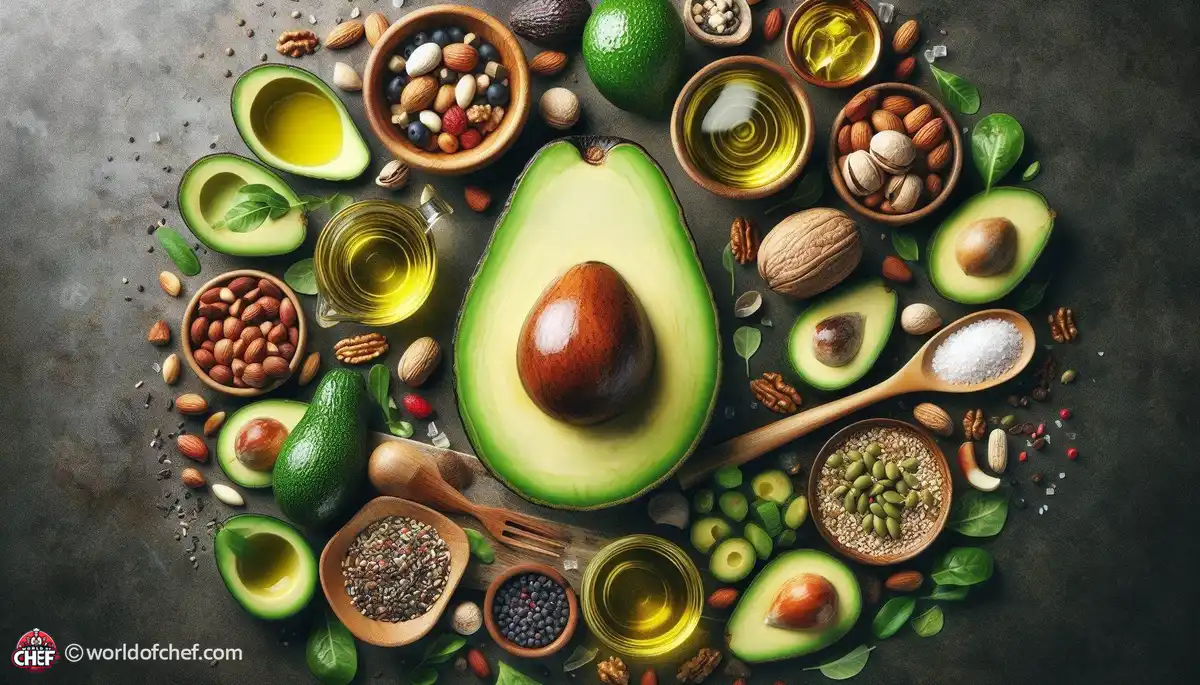
Dinner Delights: High-Fiber Recipes for Every Palate
Clarence Guido - Oct 7, 2024 - 7 min read


Omega-3 fatty acids are nutrients that every body needs to maintain normal, healthy function. As it relates to brain performance, heart health, as well as inflammation, one should consider taking these into his or her diet or supplementation. There are also three types of omega-3 fatty acids: namely alpha-linolenic acid, eicosapentaenoic acid, and finally docosahexaenoic acid. While sources for EPA and DHA include fish and other similar aquatic sources, ALA comes from plants.
Omega-3 fatty acids are considered to have a myriad of Health Benefits. They prevent heart disease by lowering triglyceride levels, reducing inflammation, and improving arterial function. They also play an important role in brain development during fetal development and early infancy. Omega-3s also support healthy vision, cognitive function, and reduce the risk of age-related cognitive decline.
Flaxseeds are one of the richest sources of ALA, which is the precursor to EPA and DHA. These tiny seeds are nutritional powerhouses with high fibre, protein, and fundamental omega-3 fatty acid content. Adding flaxseeds to your diet is pretty easy; just sprinkle them on cereals, yogurt, or salads or blend them into your favorite smoothies. The alternative method is flaxseed oil, which lacks the fiber and protein found in whole flaxseeds.
Chia seeds are another excellent source of ALA and are also valued for their versatility and nutritional benefits. Like flaxseeds, chia seeds can easily be added to various recipes, such as baked goods, oatmeal, and puddings. These small seeds absorb liquid and take on a gel-like texture, making them a favorite for thickening recipes or making dairy-free alternatives to pudding or yogurt. Furthermore, chia seeds are high in fiber, protein, and essential vitamins and minerals.
Of all nuts, walnuts stand out because they are among the very few plant-based sources of omega-3 fatty acids, in particular ALA. The nut in the shape of the brain is very tasty and filled with antioxidants, vitamins, and minerals. Introduce walnuts into your diet by having a handful of raw nuts as a snack or toss them in your salads, stir-fries, or baked goods to increase the nutritional content.
Hemp seeds are becoming the new superfood, mainly because of their impressive nutritional profile and versatility. The tiny seeds are rich in omega-3 fatty acids, especially ALA, and also a complete protein source, containing all nine essential amino acids. The seeds have a slightly nutty flavor and can be sprinkled on salads, yogurt, or oatmeal, blended into smoothies, or incorporated into baked goods for an added nutritional boost.
Spinach is one of the most nutrient-rich foods, containing a significant number of essential vitamins, minerals, and antioxidants. Although not as rich in omega-3s as nuts and seeds, spinach does provide some ALA. It is simple to include spinach in your diet because it can be consumed raw in salads, sautéed as a side dish, or added to smoothies or soups for added nutrition.
Other vegetables which are rich in ALA are Brussels sprouts, which resemble mini cabbage appearance but is full of dietary fiber, vitamins, and minerals. Roasted, sautéed, or steamed, this small cabbage-like vegetable may be eaten as a side dish or added to salads, stir-fries, and pasta dishes for flavor and nutritional enhancement.
Flaxseed oil is the oil that comes from the flaxseeds. It is the richest source of ALA among the plant sources. This yellow-colored oil possesses a unique nutty taste. It can be taken either as dietary supplement oil or culinary oil. It has to be stored in a refrigerator, and consumption must be within a very short period. It may be used directly over salads, vegetables, or over a cooked meal to increase omega-3 fatty acid levels in one's diet.
This is oil from the seeds of the canola plant and is prized for its neutral flavor and high smoke point, making it perfect for cooking and baking. While canola oil does contain a modest amount of ALA, it will certainly add to your overall omega-3 intake if you're using it in the right context within your diet. Cold-press or expeller-press canola oil for best nutritional retention and avoid the highly refined stuff.
Seaweed is a seashore plant that is most widely consumed in Asian culture, prized for its distinctive flavour and nutritional value. Some genera of seaweed, namely kelp and nori, contain small amounts of EPA and DHA but are still a good and valuable plant source of both these essential omega-3 fatty acids. Seaweed can be added as a nutritional supplement to a soup, salad, or sushi roll.
Algae-based supplements are the new talk of the town as vegan-friendly alternatives to fish oil capsules. These are sourced from microalgae, which are known to be rich sources of EPA and DHA. Algae supplements provide a hassle-free method of ensuring an adequate supply of omega-3 fatty acids, especially for a plant-based diet or for individuals with seafood allergies. Make sure that algae supplements come from sustainable sources and third-party tested for purity and quality.
In summary, although fish and other marine sources are the main sources of EPA and DHA omega-3 fatty acids, there are many plant-based alternatives to these fatty acids for vegetarians and vegans or for people wishing to increase their intake of plant-based foods. Including a range of nuts, seeds, Leafy Greens, plant-based oils, seaweed, and algae supplements in one's diet would ensure the right amount of omega-3 fatty acids is obtained to benefit health. It would be necessary to place focus on whole foods and to have advice from proper channels, including healthcare professionals and registered dietitians.

Clarence Guido - Oct 7, 2024 - 7 min read

Lydia Timmerman - Oct 6, 2024 - 6 min read

Logan Trowbridge - Oct 6, 2024 - 7 min read

Wayne Tobar - Oct 4, 2024 - 8 min read